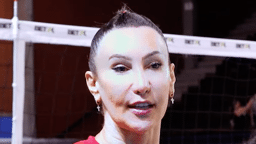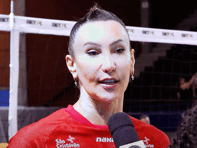 One of the reasons we hear professional athletes don’t come out is that they don’t have a good reason. “They would risk too much,” we hear. “They can just wait until after retirement.” But of course, even then they keep chasing a million-dollar dangling post-career carrot. So they stay in the closet.
One of the reasons we hear professional athletes don’t come out is that they don’t have a good reason. “They would risk too much,” we hear. “They can just wait until after retirement.” But of course, even then they keep chasing a million-dollar dangling post-career carrot. So they stay in the closet.
Let me introduce you to 14-year-old Jamey Rodemeyer. He killed himself last weekend after years of being bullied by kids about his sexual orientation. He had previously recorded an 'It Gets Better' video (posted after the jump). He came out as bisexual to his friends, but the bullying was too much to take. As I'm sure you know, he's just the latest young person to kill himself because of anti-gay bullying.
 One of the reasons we hear professional athletes don’t come out is that they don’t have a good reason. “They would risk too much,” we hear. “They can just wait until after retirement.” But of course, even then they keep chasing a million-dollar dangling post-career carrot. So they stay in the closet.
One of the reasons we hear professional athletes don’t come out is that they don’t have a good reason. “They would risk too much,” we hear. “They can just wait until after retirement.” But of course, even then they keep chasing a million-dollar dangling post-career carrot. So they stay in the closet.
Let me introduce you to 14-year-old Jamey Rodemeyer. He killed himself last weekend after years of being bullied by kids about his sexual orientation. He had previously recorded an 'It Gets Better' video (posted after the jump). He came out as bisexual to his friends, but the bullying was too much to take. As I'm sure you know, he's just the latest young person to kill himself because of anti-gay bullying.
I’m getting really frustrated with our closeted professional athletes. This kid in Buffalo, N.Y., came out even though he was teased constantly. Yet masculine, larger-than-life millionaires with millions of fans still can’t bring themselves to do it. I started calling them cowards a few months ago, and that word seems more appropriate every day. How else can you describe someone who has his $400,000 game check deposited to his bank account 16 times a year while reading headlines of another gay kid killing himself?
I can't remember what blog I was reading last week, but the writer said the first active pro American athlete coming out would be a watershed moment in our history. He said it would change things. And it would. With the repeal of Don't Ask Don't Tell today, sports is truly the last closet. An athlete coming out would have such a deeper impact on our culture than the end of Don't Ask Don't Tell. It wouldn't suddenly stop all the anti-gay bullying overnight, but it would quiet some. Even if it quieted one, that's a big step in someone's life. Instead, these athletes staying in the closet reinforce the notion that gay is bad; If it weren't bad, they would come out publicly.
One defense I hear is that "no one asks them if they're gay." We've heard from the occasional athlete who came out after retirement that "they wouldn't lie about it if asked." No. Sorry. That doesn't fly. People who have social responsibility don't wait until someone else asks them to act. They act. They see an injustice and they ask. Dan Choi didn't wait around until HRC came knocking on his door: He saw people suffering and he took matters into his own hands.
It's just like football and basketball players who take victory on the field and court into their own hands; They don't wait until someone asks them if they'd like to catch a game-winning touchdown, they demand the ball. It's how their brains work. They know how to do it. They know how to make change.
Instead, they all sit in their penthouses, watching their 60-inch hi-def TVs with their boyfriends, as news of kids like Jamey scrolls by them. "I can't come out," they tell themselves. "I might lose a jersey sale. I might not get that next Gatorade endorsement deal. Sure, I've got $5 million in the bank, but it's not enough. Risking another million isn't worth potentially saving a kid's life."
While it might sound harsh, that is in fact the decision they are consciously making every day.
We have a policy at Outsports to not out anyone. I can't see a time when we would go against that policy, but I've been thinking about it more and more. At some point, does the coming-out of these millionaires whose salaries we pay become more than just a "personal decision"? At some point, is it the responsibility of the many to put the bullying and suicides of 14-year-olds ahead of a public millionaire's desire to stay in the closet? I keep answering "No" to these questions, but more and more I find myself wanting to say "Yes."
Hat tip to Towleroad.







































